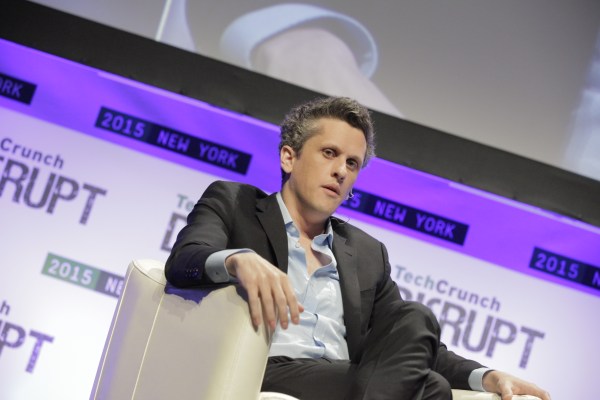Box reported its second quarter fiscal 2017 earnings after the bell on Wednesday. The company beat estimates, posting an adjusted loss of 14 cents, compared to the 19 cents expected by analysts. They also surpassed revenue predictions, reporting $95.7 million instead of $94.65 million, which is up 30% from the same quarter last year. Shares ticked up about 5% in initial after-hours trading, and then fell flat.
Box is seeing a “dramatic improvement in efficiency,” co-founder and CEO Aaron Levie told TechCrunch, pointing to lower sales and marketing costs relative to new customer acquisition. Investors had been skeptical that Box was spending too much in this category, but the company has been steadily improving this ratio. “We will be cash flow positive by the end of this year,” he said.
The company made an acquisition, buying the small team at Wagon, in an effort to improve their analytics. When asked if the company would make more acquisitions, Levie said he “would totally bet on it” and pointed to security and workflow collaboration.
Box also raised its full-year guidance, expecting revenue to be between $394 million and $396 million. Their adjusted earnings per share is forecast to be at a loss, ranging between 67 cents and 69 cents.
The company announced over 4,000 new paying customers, including Uber and Pfizer, saying it grew its total customer base to 66,000 businesses.
Some of the company’s more recent initiatives include Box Shuttle, which is about migrating existing files into the cloud. They also touted their Box Partner Platform Program for enterprise apps.
But it is a competitive landscape for cloud storage, with Dropbox, Egnyte and others competing to store documents online. Box has tried to carve out an edge in the enterprise space, securing many Fortune 500 companies as clients.
Shares were up almost 18% in the past month, but still trade slightly beneath the company’s IPO price of $14 in 2015. Dropbox, still a private company, has also seen its share price decline.
The company has a market cap of about $1.75 billion.
